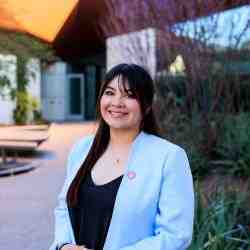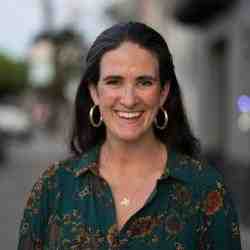Introduction
Péter Orbán is providing new services to the disabled and providing a private, affordable alternative to state-run institutions that is a model for the new nonprofit sector in post-communist Hungary.
The New Idea
Péter Orbán's dream is to mainstream Hungary's long isolated and marginalized disabled persons through creative interaction between them and non-disabled people. In the beautiful countryside near Budapest, he has opened a center named Fecskepalota, or the "Swallow's Palace," which is the first in Hungary to provide disabled people and their families with comprehensive services and recreation programs specially customized to meet their needs. The Swallow's Palace, which is privately funded, provides state institutions that care for the disabled with a chance to learn and experiment with new techniques, particularly valuable in a time when government funds for the disabled have been reduced.
One of the distinguishing qualities of Péter's project is how resourcefully he has adapted it to Hungary's economic realities, where empty buildings are plentiful and cash is hard to come by. The Swallow's Palace occupies one of the many abandoned buildings of the former communist regime, and Péter has developed a unique way to staff and finance it which maximizes its utility while keeping the price very low. Based upon the time-share principle, various hospitals and other health care organizations reserve the Swallow's Palace for blocks of time in exchange for staff services or labor and construction materials as well as money. This method of share selling is unique in Hungary. In addition to the financial benefits to this approach, the time-sharing method brings together people in the health care field who otherwise would not have the opportunity to interact and share ideas.
Near his center, Péter has begun to create a domestic animal park called "Handyland." When completed the park will be staffed by disabled children and will be a venue for positive interaction between them and non-disabled children. Moreover, Péter hopes that by providing these special children with meaningful tasks and responsibilities, they will become empowered and begin to fight for wider acceptance in mainstream Hungarian society.
The Problem
Approximately three percent of the population in Hungary is mentally challenged and ten percent is physically challenged. However, because of the poor quality of census data in Hungary, many believe these estimates to be low. With rapid advancements in medicine more and more babies with disabilities are surviving.
Historically, the prevailing Hungarian approach to "otherness" has been to assimilate disparate groups within the society; the Roma, or gypsies, have been one notable exception to this pattern, and disabled people are another. During more than 40 years of communist government, the official method of addressing the needs of this "different" population has been to institutionalize them. Large impersonal facilities have been constructed outside of cities, where disabled individuals are isolated from the rest of society. These institutions are run by either the state or by the Church. They were chronically underfunded even before Hungary's political changes in 1989; since that time public funds for these limited care facilities have dwindled further.
Many people who work with the disabled agree that without private initiatives to fill in the gaps of the public system the situation for Hungary's disabled population will remain primitive, hopeless and brutal. Major initiatives must be undertaken to integrate disabled people and their families into mainstream Hungarian society, so that their communities can learn to recognize their value and not fear the ways in which they are different.
The Strategy
In 1991 Péter established a foundation and began to approach government-run and church-run hospitals, institutions and organizations for the disabled, encouraging them to invest in the construction and staffing of his center. Those institutions that could not afford to contribute financially were allowed to donate materials, skilled labor and man-hours. The local government of Erd donated the land and abandoned building which now houses the project. Currently there are 24 institutions who are share-holders in the Swallow's Palace and divide the weeks of the year amongst themselves. During their reserved blocks of time, they move to the Palace as if on retreat, bringing with them their own doctors, therapists, psychologists and food service people. They conduct programs with the help of Péter and his staff. The center provides a place away from the institutional environments where the children can receive more individualized attention. During their stay the health care professionals experiment with new techniques and approaches advocated by Péter and his organization. The Swallow's Place is now completely booked until the year 2001.
The attraction for the participants is simple. There are no recreational facilities for disabled children and their families in Hungary. Péter's center is a cheap solution to this problem. Currently, it costs approximately $750 to host a group of 35 people for one week. Administrators and staff of the large traditional institutions look forward to their time at Swallow's Palace because they can leave the dreary environments in which they normally work. The popularity and success of the project is also demonstrated by the $2,000 profit that the Palace made in 1996.
Péter is in the initial planning phase of the "Handyland" animal park and he hopes to open the park within a year. It will also be located in Erd but it will be completely separate from the Swallow's Palace. The park will be run by disabled people, who will raise traditional Hungarian farm animals in a simulated farm environment. Visitors will be able to eat traditional foods and learn from the disabled children about life on a farm. Péter believes that the park will teach the "special" children a sense of responsibility and will give them a sense of self-worth. Also he believes that the park will allow these children to interact with non-disabled children whom they normally would never meet: he plans to invite school children from all over Hungary to the park. He believes that such positive interaction among children is a critical first step in changing societal attitudes about the disabled. Péter plans a large-scale national campaign when the park opens to get parents, teachers and children to come to the park. It is likely that the First Lady of Hungary, Zsuzsa Goncz, who is a major supporter of Péter's work, will open the park herself.
Péter consciously designs his projects so that they may be widely copied and applied. He is demonstrating how organizations that would normally compete with each other can work together. Furthermore, he is proving that through the principle of in-kind donations and time-sharing, organizations can create and manage needed facilities at an affordable cost. He has been approached by many organizations, including those that work with human rights and environmental preservation as well as the disabled, seeking advice on how to fund a nonprofit through share selling and how to start a project with little or no money. Péter has gladly provided assistance to these organizations and is confident that his techniques will spread throughout Hungary and the region.
In the past year, Péter has received a great deal of national attention for his work. He has been featured on several television shows. He has also become the President of the Hand-in-Hand Foundation, which is dedicated to improving the quality of life for Hungary's disabled. The honorary chair of the Foundation is Zsuzsa Goncz, who works very closely with Péter on his many projects.
The Person
When Péter was nineteen years old he wanted to date a young woman who had befriended a disabled girl. In order to further his romantic prospects, he began spending time with the disabled girl himself and became so taken by her that he became passionate about helping her and others like her. His dedication to helping people instead of hurting them became the basis for his conscientious objection to compulsory military service. Péter believed that his time could be better spent helping Hungary's many needy people. However, because the government offered no alternative to military service, he was tried and sent to prison for three years. Sadly, he began serving his prison sentence three days after his wedding.
While in prison, he came into close contact with many of the "damaged" people of society, and his subsequent activities have all been aimed at raising the expectations and the self-esteem of the disadvantaged, through an emphasis on hope and human values. This belief is reinforced by Péter's strong religious belief that people should live and work together in a kind of communal atmosphere much as the early Christians did.
After his release from prison, he had difficulty finding work because he lacked a "certificate of morality" from the government: a result of his refusal to serve in the military. He started working as a manual laborer in a school for mentally disabled children where his wife worked as a special education teacher. He has three unpublished manuscripts: Correspondence in Prison; The Swallow Palace Story, and Project Drafts. Péter says that inspiration for his ideas often comes while washing dishes or driving in the countryside. Upon hearing that he was elected an Ashoka Fellow, Péter said, "Perhaps Ashoka has given me back the three years I lost in prison."



